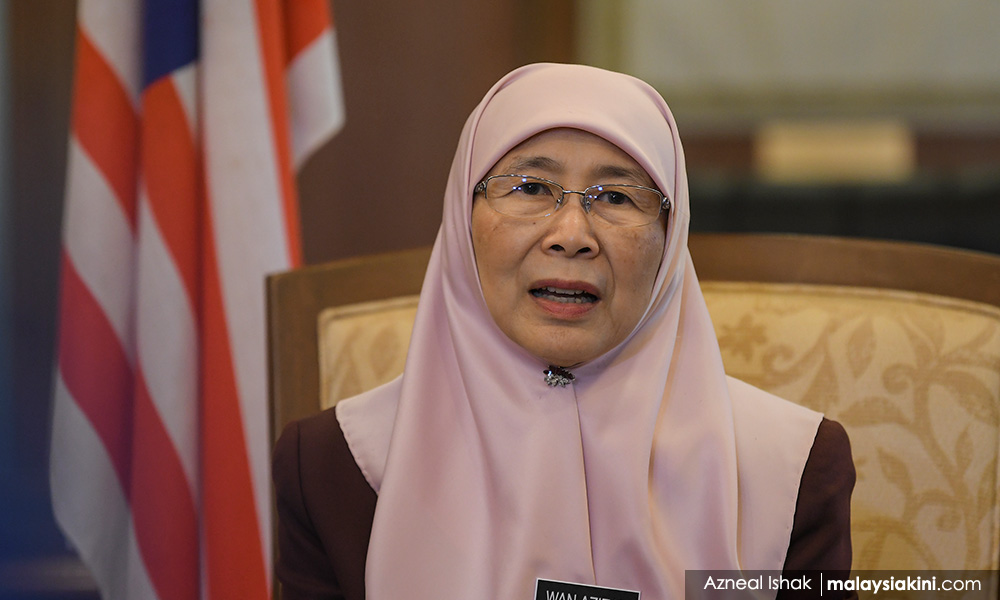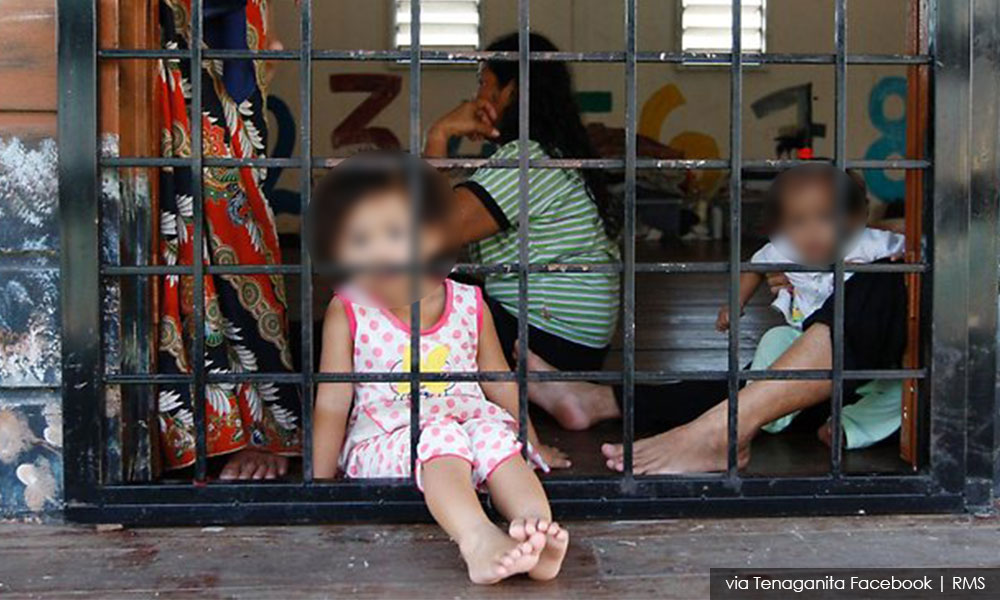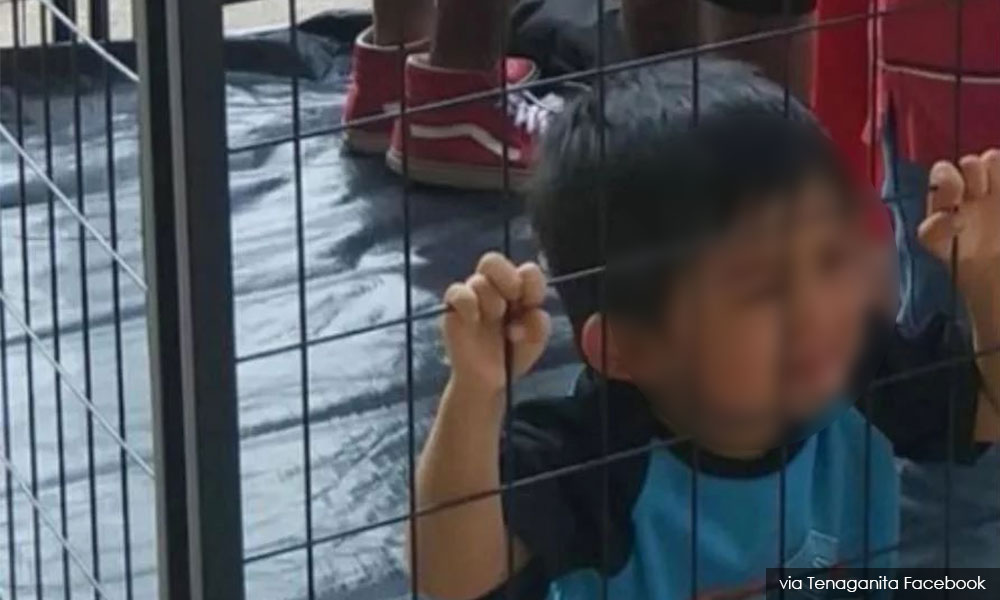
The government is expected to roll out a pilot project trialling an alternative to detention programme, which, if successful, could see hundreds of children moved out of immigration detention centres nationwide.
The standard operating procedures for the pilot project, which involves moving children from immigration detention centres to NGO shelters, are to be finalised by the end of this month, Deputy Prime Minister Dr Wan Azizah Wan Ismail said.
There are 363 children under the age of 12 now being held at immigration detention centres while waiting for their immigration status to be determined.
"Children do not belong at (immigration) depots and should not be detained for immigration offences as long as there is a better alternative.
"My ministry will continue to work with the Home Ministry towards (having) no detention of children in Malaysia," Wan Azizah told Malaysiakini.
Her statement comes amid public scrutiny of the Immigration Department's practices, following the release of two toddlers who had been detained without their mothers, who had valid visas, at an immigration depot in Bukit Jalil since June 14.
According to the deputy premier, the pilot programme would involve five children being released from the immigration detention centres at each time to an NGO shelter home.
"While the children are in an NGO shelter home, efforts will be taken to either search for the child’s family or make arrangements with the related embassy for the return of the child or family to their home country," Wan Azizah said.
The children would be chosen using a vulnerability assessment toolkit developed by the Social Welfare and Immigration Departments on the advice of social workers and case managers.
Besides protecting the children's wellbeing, Wan Azizah said the alternative to detention would also decrease the Immigration Department's burden and costs.

Last month, Immigration director-general Khairul Dzaimee Daud said the government spends nearly RM3.5 million a month to ensure there is enough food for detained undocumented migrants.
The pilot programme has been in the works for five years, said child rights activist Hartini Zainuddin, but the proposal has been “bouncing back” between the agencies.
She said children are now held in deplorable conditions, with boys aged above 12 placed with adult men.
Immigration detainees are organised according to gender and children under 12 are placed with their mothers. Unaccompanied minors are also placed with the women.
But boys aged 12 to 17 are placed with adult male detainees, as they are deemed unsuitable to be in the same area as the women and younger children.
Following the toddlers' release, the Immigration Department said it will prioritise cases involving children, so they will not be detained for too long while waiting to have their status determined.
The Immigration Department also released photographs showing the toddlers playing in a nursery set up at the detention centre.
Not just about relocating the child
Child rights advocacy group Suka Society executive director Anderson Selvasegaram said while this is commendable, the condition or length of detention is immaterial because children should not be detained at all.
He said children are more vulnerable to psychological trauma from detention, even in the most comfortable conditions, compared to adults and the impact of detention on children is well-documented.
These include long-term emotional distress, manifesting in bed-wetting, suicide attempts, anti-social behaviour and regression in mental development, he said.
"For some people, even one day of detention can be too traumatising," he said, adding that the uncertainty faced by detainees in immigration centres is far too oppressive for young detainees who do not have the emotional maturity to cope.

Unlike juvenile offenders where the issue of harm to society and rehabilitation must also be addressed, children detained in immigration cases pose no risk to society, he said.
"The reality is, these children are in Malaysia because their parents brought them here or (in the case of unaccompanied or separated minors) arranged for them to be here."
Selvasegaram added that the alternative to detention programme should also not be about relocating the child to another guarded facility, but to provide the child with an environment where his or her best interests are met.
Ideally, this would mean placing the child with a caregiver from his or her community instead of placing him or her in an institution.
"Shelters are fine in the short term, but in the longer term we would not want to have the child institutionalised.
"We want to provide a normal environment for the child, and for most of us, normal is being with family, not being in a children's home," he said.
In January, Suhakam urged the government to review all laws which subject children to detention without trial.
The commission said detaining children contravenes the Convention on the Rights of Children (CRC), which Malaysia is a party to.
It said children in detention develop physical and psychological health problems because facilities in detention centres do not cater to their needs. - Mkini



No comments:
Post a Comment
Note: Only a member of this blog may post a comment.